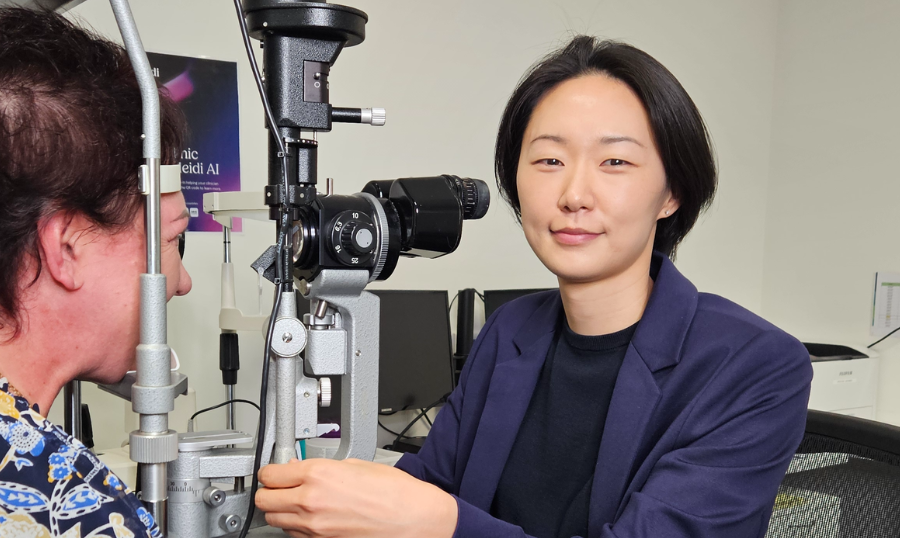Auckland Eye Welcomes Cornea and Anterior Segment Specialist Dr Bia Kim
Auckland Eye is pleased to welcome Dr Bia Kim, a highly trained Cornea and Anterior Segment Specialist, to our team.

Cataracts are a cloudy or opaque area on the crystalline lens of the eye that develops over time. Despite being one of the most common eye conditions in the world, because most cataracts develop gradually over time and symptoms can often be hard to pick up, most cataract cases aren’t caught until they’ve progressed. While cataracts can develop at nearly any age, they’re most often discovered after the age of 60. But even if you are not near that age, it’s still important to know the symptoms so you can help identify the signs of cataracts in loved ones.
While you obviously wouldn’t observe the changes in your loved one’s vision first hand, paying attention to how they’re interacting with lights and their behaviors during activities like reading and writing can provide clues that indicate vision issues, such as cataracts.
Symptoms of cataracts may depend on the severity, but there are many common signs including:
It’s also equally important to listen to any comments your loved one makes directly about his/her eyesight. In particular, you should take note of comments regarding:
All of the symptoms above are signs of cataracts.
Once cataracts develop, it is not possible to reverse the cloudiness of the lens or halt further damage. If left untreated, cataracts can cause significant changes to vision, making it harder for your loved one to do the everyday activities that they once enjoyed such as reading or watching television and driving without difficulty due to poor vision.
If you have noticed your friend or family member mentioning any of these cataract symptoms, or exhibiting any of the behavior listed above, sharing important information about cataracts and cataract treatment with them is one of the best ways you can help. Most importantly, you should suggest they see an ophthalmologist for a thorough eye exam and book an appointment for them if they require assistance.
Cataract surgery is common and can help restore vision loss as a result of this condition. The microsurgery technique removes the damaged lens inside the eye that has become cloudy and replaces it with a new intraocular lens to restore vision.
Cataract surgery is one of the safest eye surgeries and has a very high success rate. Being a short operation of fewer than 15 minutes and a hospital stay of around two hours means that the patient will be able to go home on the same day of the surgery. The visual results for cataract surgery are excellent, with most people achieving driving standard vision without glasses.
If you would like to learn more about cataract treatment, schedule an appointment with Auckland Eye and call 09 529 2481.

Auckland Eye is pleased to welcome Dr Bia Kim, a highly trained Cornea and Anterior Segment Specialist, to our team.

Discover how Auckland Eye is redefining inclusive healthcare by launching New Zealand’s first assistive website toolbar.

Macular degeneration is a leading cause of vision loss in older adults. There’s no cure, but its progression can be slowed. Here’s what to know.